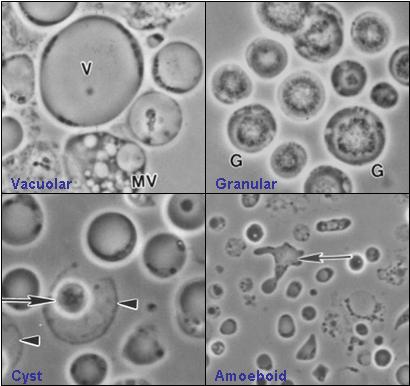A common gut microorganism may play a surprising role in how our bodies process healthy foods. New research involving over 50,000 people worldwide shows that higher levels of Blastocystis in the gut are associated with better cardiovascular health and lower body fat.
The study, published in Cell, was led by researchers at Massachusetts General Hospital (MGH). It suggests that Blastocystis, a single-celled organism often found in the human digestive system, might help amplify the benefits of a nutritious diet.
From Parasite to Potential Health Ally
Blastocystis has long been a subject of debate among scientists. Some consider it a harmless gut resident, while others label it a parasite. This new research points to a potentially beneficial role.
“Blastocystis’ effects on health and disease are controversial and likely context-dependent, but our research suggests that it may play a beneficial role in how diet impacts human health and disease,” said co-lead author Long H. Nguyen, MD, MS, a physician investigator at MGH and assistant professor at Harvard Medical School. “At the very least, its ubiquity may suggest a non-pathogenic role.”
The researchers analyzed data from nearly 57,000 individuals across 32 countries. They looked at how Blastocystis levels in the gut related to diet, cardiovascular health, and metabolic factors like obesity and diabetes.
Diet, Blastocystis, and Better Health Markers
The study found that Blastocystis presence varied by region and was influenced by diet. People who ate more plant-based and minimally processed foods tended to have higher levels of Blastocystis.
Importantly, higher Blastocystis levels were linked to better short-term indicators of cardiometabolic health. Individuals with more Blastocystis showed more favorable blood sugar and lipid profiles, suggesting a potential positive impact beyond diet alone. Lower Blastocystis levels were associated with long-term outcomes like obesity.
The researchers also observed that Blastocystis was rarely found in newborns, indicating it’s likely acquired later in life. Intriguingly, they even detected it in stool samples from 595 AD, suggesting it’s not simply a marker of modern microbiome composition.
In a six-month personalized diet intervention study, improvements in diet quality were linked to subsequent increases in Blastocystis prevalence and abundance.
“Overall, our findings suggest a potentially beneficial modulating role for Blastocystis, which may help explain individualized responses to diet and differences in digestive health depending on the presence and level of Blastocystis,” Nguyen explained. “Also, our results indicate that Blastocystis may not be a parasite with detrimental host effects but, rather, a favorable constituent of the human gut microbiome.”
While these findings are promising, more research is needed to determine if increasing Blastocystis levels could be a viable disease-prevention strategy. The study adds to a growing body of research exploring how modulating gut microbes might help prevent various medical conditions.
As scientists continue to unravel the complex relationships between our gut microbiome, diet, and health, Blastocystis may emerge as an unexpected ally in the quest for better nutrition and disease prevention.
If our reporting has informed or inspired you, please consider making a donation. Every contribution, no matter the size, empowers us to continue delivering accurate, engaging, and trustworthy science and medical news. Independent journalism requires time, effort, and resources—your support ensures we can keep uncovering the stories that matter most to you.
Join us in making knowledge accessible and impactful. Thank you for standing with us!

